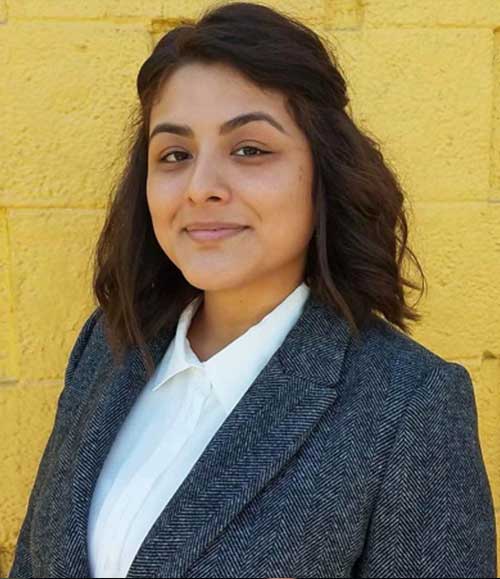CLS Graduate Spotlight: Stephany Bravo
March 20, 2025 - Emily Johnson
 Name: Stephany Bravo
Name: Stephany Bravo
Hometown: Compton, CA
CLS Affiliation: CLS Dual Major Doctoral Degree Candidate
Graduation Year: 2025
Majors: English and Chicano/Latino Studies
Stephany Bravo is a dual major doctoral degree candidate in the Department of English and the Chicano/Latino Studies Program. Bravo attended the University of California, Santa Barbara as an undergraduate student where she received a dual degree in Chicana/o Studies and Latin American and Iberian Studies. In 2018, she earned a master’s degree in Mexican American Studies from the California State University, Los Angeles. She is currently working on her dissertation titled, “Hub City Fractals: Tracing Relations and Building Home in Compton, CA.” where she draws on diverse methodologies for a comparative/relational analysis of Elliott L. Pinkney murals (1977), Jenise Miller’s poetry (2019) and Leticia García-Serrano’s family archive (2024).
We recently had the opportunity to speak with Stephany about her career goals, what inspires her, and what advice she would give to undergraduate students.
What inspired you to choose your field of study, and what drew you to MSU specifically?
I’m first and foremost a product of Ethnic Studies, but I was actually drawn here due to the English Department. I was part of the inaugural cohort for the MUSE Scholars Program (Mentoring Underrepresented Scholars in English). The MUSE workshop is directed at prospective English graduate students from underrepresented groups and allows them to learn more about the English Department, visit graduate classes and co-curricular activities, meet with our graduate faculty and graduate students, and receive individual feedback from the faculty on their application materials for graduate school.
I got the opportunity to meet some wonderful faculty and staff who truly cared about their graduate students. As a prospective graduate student, they were willing to help on the application, and when I shared my background in Chicano Studies, they walked me over to the Chicano/Latino Studies building so that I could consider a dual degree. I have to say that Chicano/Latino Studies and English chose me, I never considered the PhD as a possibility. I continued because of great mentors in the field who provided a space for me to draw from my creativity and curiosity.
How has CLS specifically impacted you?
The Chicano/Latino Studies (CLS) Program at MSU was created out of student demands and activism, as many Ethnic Studies Departments have been. I come from a long line of these departments/programs, all the way from UC Santa Barbara and CSU Los Angeles. CLS has served as that continued reminder of how far we’ve come and the futures ahead, particularly when we think through the Midwest. It’s exciting to be a small part of this very long lineage and to have the support of the program to teach its history to incoming generations. The impact is in acknowledging these histories and the individuals who continue to do the work because you collectively strategize ways to pay it forward.
What advice and/or tips would you give students in terms of navigating school?
I tell my Introduction to Chicano/Latino Studies students that the academic journey is not an easy one. As a first-generation student with a working-class background, it was definitely a learning curve. What I think keeps us going is certainty in the work that we do, not forgetting that passion that motivated us to apply in the first place. So, never forget your reasoning. I think for most, this journey ties back to community, building towards the liberating worlds we desire. So, build alongside your community and never shy away from help.
What are your professional/career aspirations?
I’m a little all over the place as an interdisciplinary scholar. My ideal “professional/career” aspirations would be in the archival realm and working with first-generation students, that’s a common thread. I’m trying to imagine a career in University Libraries, specifically Special Collections and Archives that can give me the room to process archival collections, teach a few sessions on archival theory and praxis, and be actively involved in student and community programming and outreach. I think university libraries are instrumental; they are the hub of public knowledge. I’m thinking about a career that would make university libraries more accessible for our students and the local community, one where we can cross-collaborate and build upon BI&POC archives.
What (or who) inspires you?
In short, my mother and father. I think they dreamt things for me that I could have never imagined. All in all, I’m here because of them.

